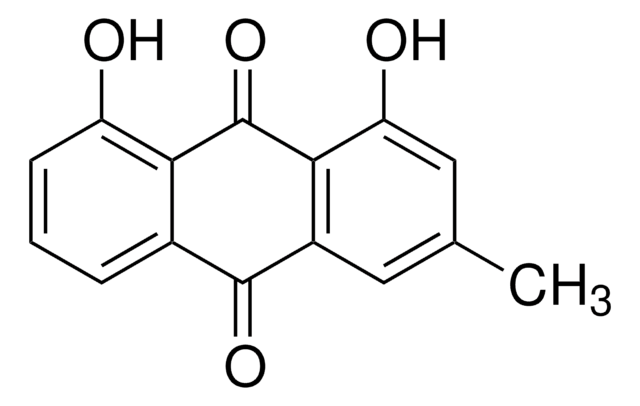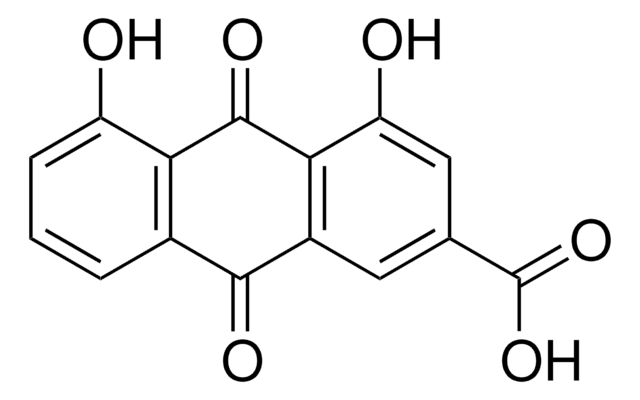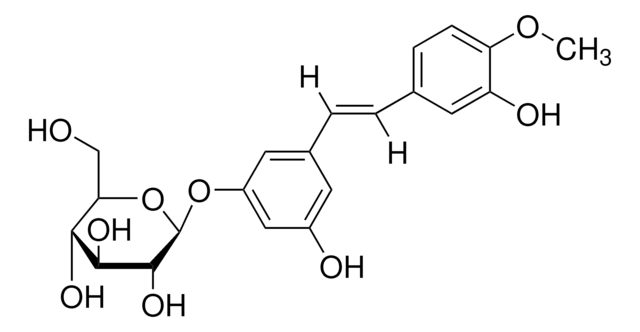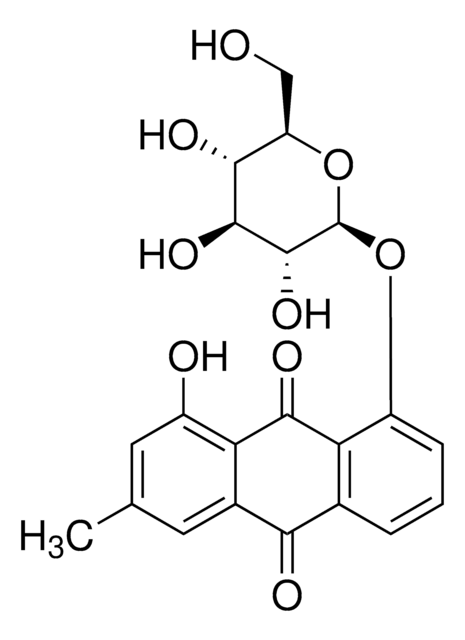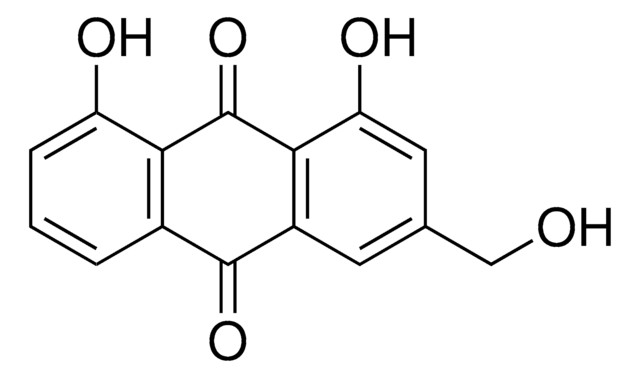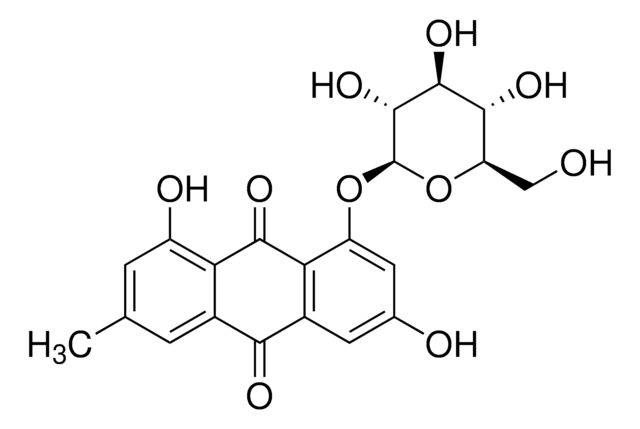01542
Chrysophanol
analytical standard
Synonym(s):
1,8-Dihydroxy-3-methylanthraquinone, 3-Methylchrysazin, Chrysophanic acid
About This Item
Recommended Products
grade
analytical standard
Quality Level
assay
≥98.0% (HPLC)
shelf life
limited shelf life, expiry date on the label
technique(s)
HPLC: suitable
gas chromatography (GC): suitable
mp
192-196 °C
suitability
conforms to structure for Proton NMR spectrum
application(s)
food and beverages
format
neat
storage temp.
2-8°C
Looking for similar products? Visit Product Comparison Guide
General description
Application
Packaging
Other Notes
signalword
Warning
hcodes
Hazard Classifications
Eye Irrit. 2 - Skin Irrit. 2 - STOT SE 3
target_organs
Respiratory system
Storage Class
11 - Combustible Solids
wgk_germany
WGK 3
flash_point_f
Not applicable
flash_point_c
Not applicable
Choose from one of the most recent versions:
Already Own This Product?
Find documentation for the products that you have recently purchased in the Document Library.
Customers Also Viewed
Our team of scientists has experience in all areas of research including Life Science, Material Science, Chemical Synthesis, Chromatography, Analytical and many others.
Contact Technical Service
